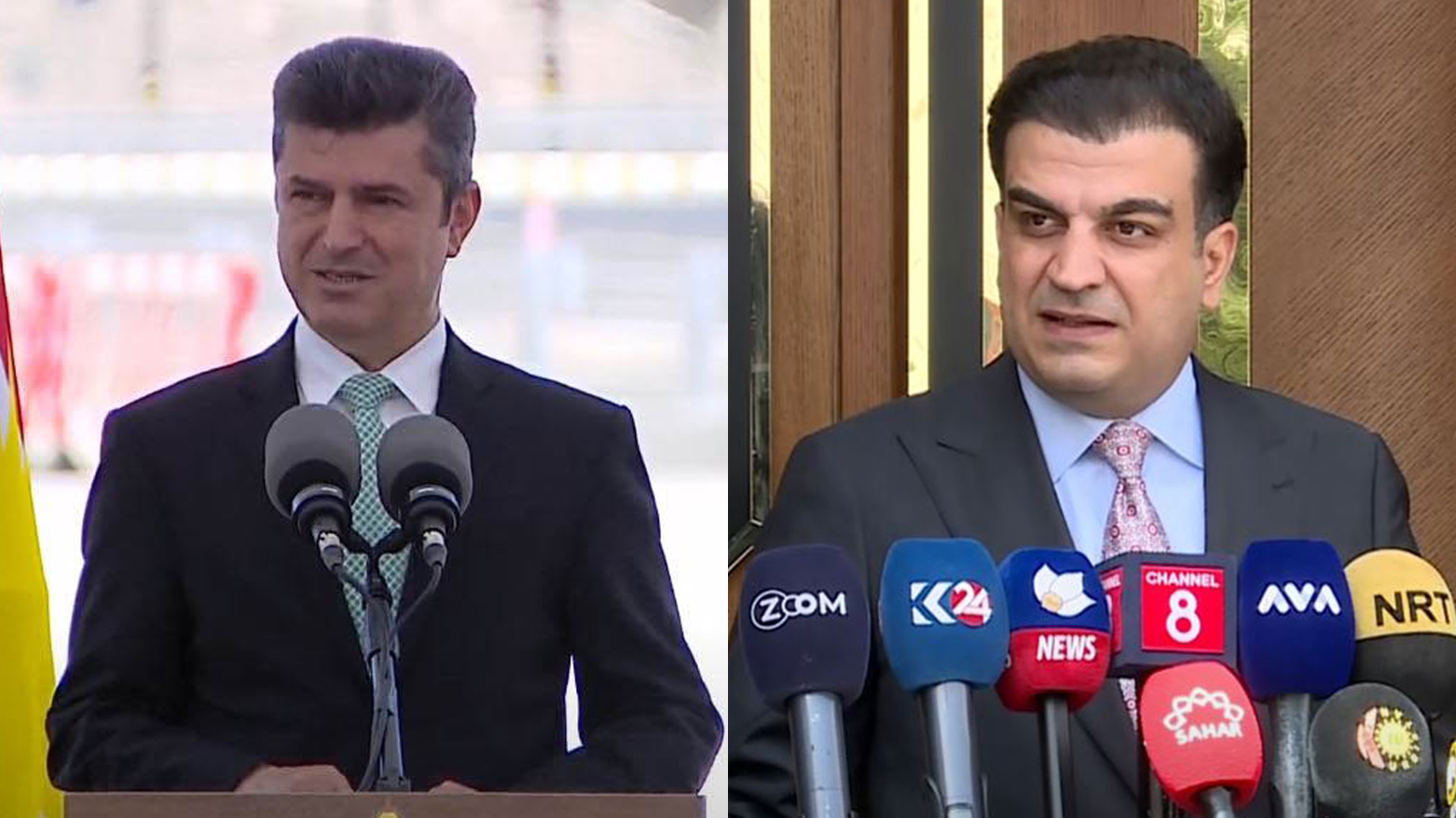Ali Tatar: Shekhan–Lalish Dual Carriageway Completed at Sacred Yezidi Site
The Shekhan–Lalish road was inaugurated by PM Masrour Barzani, with Duhok Governor Ali Tatar emphasizing its early completion. KRG spokesperson Peshawa Hawramani announced that the government has implemented 1,342 development projects, including the construction of 1,744 kilometers of new roads.

Erbil (Kurdistan24) – In a ceremony led by Kurdistan Region Prime Minister Masrour Barzani on Saturday, the long-awaited Shekhan–Lalish dual carriageway was officially inaugurated, one year after its foundation stone was laid. Duhok Governor Ali Tatar, speaking at the event, revealed that alongside the completion of this strategic road, several other projects are being carried out in the district as part of the government’s ongoing development plan.
Governor Tatar noted that exactly a year ago, Prime Minister Barzani had promised the people of Shekhan that the single-lane road leading to Lalish would be transformed into a dual carriageway. On September 20, 2025, that pledge was fulfilled, in what the governor described as a symbolic act of respect for one of Kurdistan’s holiest Yezidi sites. He emphasized that Lalish is not only a sacred place for the Yezidi faith but also a model of coexistence in Kurdistan, and the new road is a testament to that spirit.
Tatar announced that the project, implemented by the company North Light, was completed two months ahead of schedule, with surrounding village roads also rehabilitated to ease travel. He further declared good news for the people of Shekhan, revealing that the long-neglected Baadre–Duhok road will also be converted into a dual carriageway by decision of the Prime Minister, who sought to ease transportation difficulties in the area.
Despite crises and financial hardships, Governor Tatar highlighted the achievements of the ninth cabinet in infrastructure. Over the past five years, he said, the Kurdistan Regional Government (KRG) has implemented 1,342 development projects, of which 894 have been completed and delivered into service, while 448 are still underway.
He detailed that 517 kilometers of intercity roads have been newly built, while 228 village roads, covering 677 kilometers, were asphalted. Within Kurdistan’s cities, 550 kilometers of streets ranging from 10 to 60 meters in width were constructed. Altogether, the total length of roads built and paved inside and outside the cities has reached 1,744 kilometers.
Complementing the governor’s remarks, KRG spokesperson Peshawa Hawramani disclosed that in total, 2,681 kilometers of external roads have been newly constructed, rehabilitated, or resurfaced at a cost exceeding 1 trillion and 32 billion dinars. He added that 318 projects for village roads, with a combined length of 317 kilometers, have been completed, while 2,168 road projects were executed within Kurdistan’s cities, with allocations surpassing 2 trillion dinars.
In his speech, Prime Minister Barzani underlined that development in the Kurdistan Region has not halted despite years of crises, praising the resilience of the Kurdish people and the confidence of the private sector. He framed the Shekhan–Lalish project not as a political favor, but as a fundamental duty of the government, describing Lalish as a site of history, faith, coexistence, and revolutionary significance for the Kurdish people.
Addressing the Yezidi community directly, the Prime Minister declared, “Yezidi sisters and brothers are an authentic part of Kurdistan,” recalling the words of President Masoud Barzani: “The original Kurds are the Yezidis. Therefore, we can never be separated.” He stressed the road’s importance for thousands of Yezidi pilgrims from around the world and urged citizens to abide by traffic safety standards to ensure their protection.
Barzani also recalled the historic liberation of Sinjar from ISIS under President Barzani’s command, sharing a personal memory of the moment when the decision was made to either liberate the city or sacrifice everything. He stressed that hundreds of Peshmerga martyrs gave their lives for Sinjar, but the dignity of the Yezidi people was preserved.
The Prime Minister expressed frustration at Baghdad’s failure to implement the 2020 Sinjar Agreement due to “outlaw forces” obstructing progress. He called on the federal government to take immediate steps to normalize Sinjar and facilitate the dignified return of displaced Yezidis to their homeland.
Barzani concluded with updates on negotiations with Baghdad regarding budget entitlements and oil exports, revealing that preliminary agreements between Kurdistan’s oil companies and the federal government may pave the way toward resolving financial disputes. He voiced cautious optimism that these talks could soon lead to Baghdad fulfilling its constitutional obligations, ending the recurring salary crisis, and opening a new chapter in Erbil–Baghdad relations.